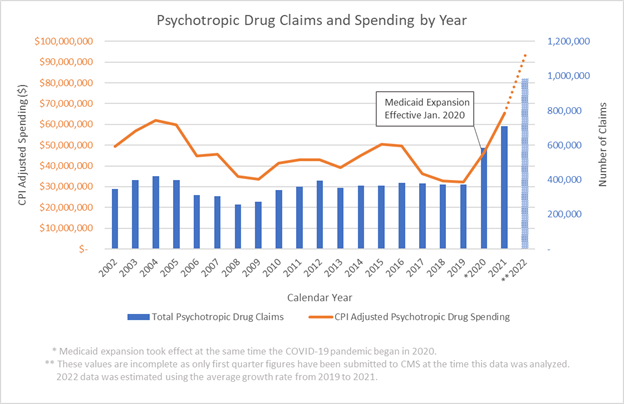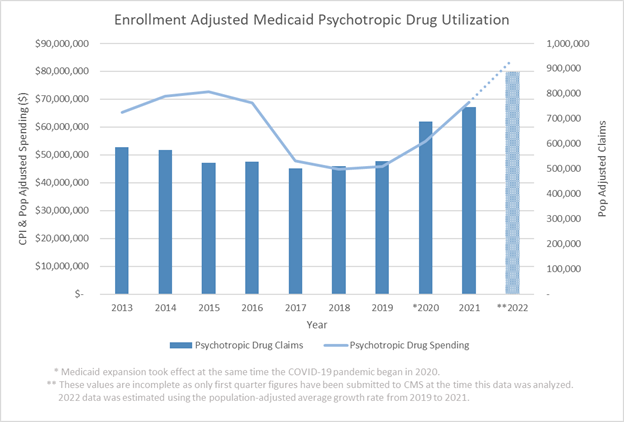MM Curator summary
The article below has been highlighted and summarized by our research team. It is provided here for member convenience as part of our Curator service.
[MM Curator Summary]: ProMedica swears its not on the ropes. But that whole losing Ohio thing really didn’t help.
Clipped from: https://www.toledoblade.com/business/development/2022/11/28/analysts-worry-about-long-term-viability-promedicas-paramount-health-plan/stories/20221128131
David Barkholz
The Blade
dbarkholz@theblade.com
Though analysts have applauded ProMedica’s plan to divest 147 money-losing nursing homes, the handoff to new operators will be expensive and the long-term viability of ProMedica’s Paramount health plan has become a concern, according to a new report from Moody’s Investors Service.
Paramount has just 88,000 health plan members today after losing about 256,000 Medicaid members last year when the state of Ohio declined to award it a new Medicaid contract under competitive bidding. It also has about 303,000 less-lucrative dental plan members.
In a report on November 17, Moody’s noted there is “uncertainty about the health plan’s long-term viability given its low remaining membership and high competition for commercial and Medicare products.”
Advertisement
The credit-rating agency also indicated that Paramount will lose revenue next year when an administrative contract runs out that it had with Anthem to transition the Medicaid members it lost in Ohio. Anthem paid ProMedica $50 million in the first quarter for access to that book of business.
Health plans like Paramount need at least 150,000 members to be viable long-term and not be at risk to adverse selection of patients who run up outsized medical costs, said Kevin Holloran, a senior healthcare analyst with Fitch Ratings.
He said Paramount’s 88,000-member health plan count “is really on the small side.”
When Ohio did not re-award a Medicaid contract to Paramount, it cost the insurer about $1.57 billion this year in annual premium revenue. Paramount also announced about 200 job cuts after the loss.
Advertisement
In an email statement, ProMedica said Paramount is competitive and there are no plans to sell it or its various product lines.
“There is no present consideration of divesting any Paramount health plans,” the statement said.
“While we are transitioning out of the Ohio Department of Medicaid’s managed care program on Feb. 1, 2023, we continue to have competitive Medicare Advantage plans, Marketplace Health Insurance, employer-sponsored health plans and dental insurance to grow Paramount Health Care.”
Paramount has been profitable throughout 2022. For the nine months ended Sept. 30, Paramount posted operating income of $39.1 million, a decrease of $24.1 million compared with the prior-year period.
Mr. Holloran said Paramount can gain the size it needs by acquiring another health plan or organically seeking new contracts with businesses and individuals.
If ProMedica doesn’t want to go down either of those avenues, selling Paramount eventually could be an option as well, Mr. Holloran said.
Moody’s said ProMedica also is looking at additional spending to provide “operating reserves” for the new operators of 147 skilled nursing homes that ProMedica has agreed to divest.
ProMedica has not revealed how much it has agreed to pay. But it easily could be more than $100 million given the scope of the operations being divested, Mr. Holloran said.
In December, ProMedica is expected to close the deal, in which it essentially agreed to give the 147 money-losing skilled nursing homes to a joint venture between Toledo-based Welltower and Integra Healthcare Properties of New York City.
It is surrendering a 15-percent stake worth about $412 million it had in a Welltower joint venture to own and operate the 147 nursing homes. ProMedica and Welltower initially purchased the nursing homes in a $3.3 billion deal for HCR ManorCare.
That turned out to be the price for getting out from under operating losses at the nursing homes. Those nursing homes were responsible for the bulk of losses in ProMedica’s senior care division that totaled $229.3 million in the first half of 2022.
In its report Nov. 17, Moody’s maintained ProMedica’s Ba2 rating on its borrowings but switched its status from under review to a negative outlook going forward. Ba2 is a notch below investment grade or junk bond status.
Part of the agency’s reasoning is that though operating losses and cash burn will be reduced by the divestiture, results are expected to fall at Paramount and ProMedica will likely take a writedown of its nursing home assets that may leave the hospital company perilously close to violating covenants on bonds and bank loans.
On the plus side, ProMedica returned its 11 hospitals to operating profitability in the third quarter. The core hospital division eked out an operating gain of $5 million in the quarter after operating losses in the first half of 2022. That $5 million operating gain compared with a $26.1 million operating gain posted in the year-earlier third quarter.
In its statement, ProMedica said it will continue “to take the requisite steps to strengthen our balance sheet throughout 2023.”
“ProMedica respects the revenue bond rating given by Moody’s Investors Service. As shared previously, we have not been immune to the challenges facing the healthcare industry, such as high inflation and persistent workforce shortages,” the statement said.
First Published November 28, 2022, 3:45pm



